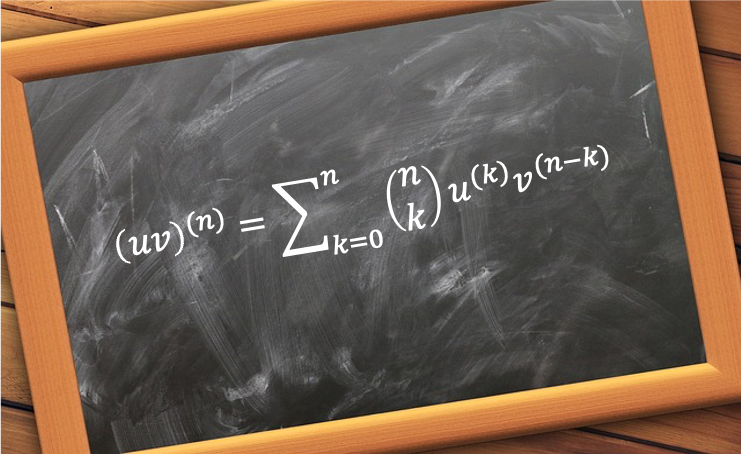Leibniz’s theorem extends the product rule to determine higher-order derivatives of the product of two or more functions.

Consider the function , where
and
are
times differentiable. Using the product rule, the first few derivatives are:
which suggests that the -th order derivative of
can be expressed as the binomial expansion
where and
are non-negative integers,
and
are the
-th order derivatives of
and
, respectively, and
are the binomial coefficients.
Eq319a is known as Leibniz’s theorem, which can be proven by induction as follows:
For ,
If eq319a holds for all when
, then for
,
Since (see this article for proof),
and the theorem holds for all and
.